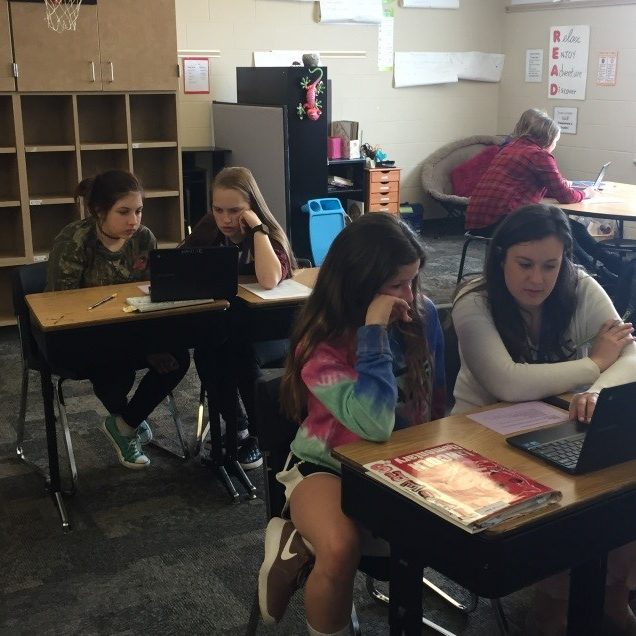Curtis P. Nielsen, University of Northern Iowa, curt.nielsen@uni.edu
Erin Becker, Lincoln Elementary School, erin.becker@cfschools.org
Jodie Bonwell, Lincoln Elementary School, jodie.bonwell@cfschools.org
Stephanie Kane, Lincoln Elementary School, stephanie.kane@cfschools.org
Many times, teachers encounter students that are unmotivated. A group of sixth grade teachers were confronted with very reluctant and unmotivated student writers. To address this, these teachers collaboratively thought about providing authentic audiences to motivate these writers. In order to provide motivation, the teachers created a project that asked students to write a four-chapter book based on issues that students would like to research and teach. The books, then were published and sent to organizations in the community.
One barrier to this project was the enormous amount of editing that needed to take place for these books to become worthy of public display. Ballock, McQuitty and McNary (2018) note that it takes considerable effort for children to “form letters, spell words” and follow convention rules when writing (p. 56). Logically, when one adds editing to that the writing process can become quite difficult.
To address common issues in writing conventions the sixth-grade teachers and university professor teamed up creating a program called Lincoln Writing Consulting Workshop (LWCW). LWCW paired a university early teacher education student (sophomore) with a sixth-grade student with the goal of editing their chapter book over a 30-minute period. To provide uniform consulting, a coaching sheet was provided to the university students. It included items such as required parts of the chapter book, emphasis on paragraphing the writing as well as “Hints for Consulting”. In the “Hints for Coaching” section the university students were notified of specific characteristics to look for if the chapters were short, one to two pages long. These characteristics included; not enough research, not enough of their own thinking or only one paragraph.
There were five university students who volunteered one hour and three students who volunteered two hours to this endeavor. They used the coaching sheet as a guide and consulted with the sixth-grade student about their topic and writing. The book content was very enlightening to one university student and invited reflection from her. Elly a sophomore elementary education major commented, “Working individually with 6th grade students gave me an inside look to some of the struggles these students face in their personal lives. Unfortunately, students carry a lot with them and it’s crucial to allow students to talk about their struggles in order to create an effective learning environment where they can succeed.” Additionally, the university students had a chance to apply their learning during this time. Grace, an elementary and middle level education major mentioned, “After helping out in the LWCW, I felt that I had gained more during the interaction than the students. As a future educator I was able to apply the techniques that I have been taught during my time in the College of Education, and I was able to see the effectiveness of these techniques as the sixth graders were responsive to my feedback.” These comments were emblematic of the experience for both the university and sixth grade students. The Lincoln Writing Consulting Workshop was a win-win.
Reference
Ballock, E., McQuitty, V. & McNary, S. (2018). An exploration of professional knowledge needed for reading and responding to student writing. Journal of Teacher Education vol. 69(1), 56-68.
